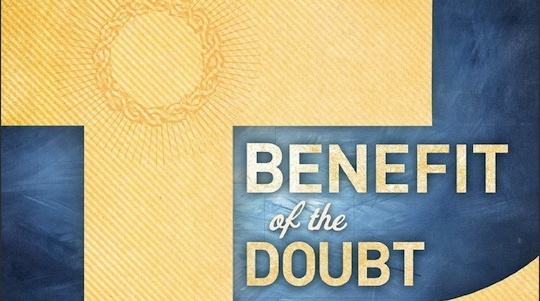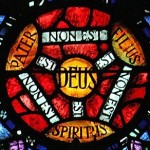We run our website the way we wished the whole internet worked: we provide high quality original content with no ads. We are funded solely by your direct support. Please consider supporting this project.
Quotes to Chew On: Conflicting Depictions of God
 “This is something like the way I believe we should respond when we encounter biblical narratives that depict God doing things we can’t imagine Christ doing. For example, I can’t for a moment imagine Jesus—the one who made refusing violence and loving enemies a condition for being considered a child of God—commanding anyone to mercilessly slaughter anyone, let alone an entire population that included women and infants. And yet, Yahweh is depicted as doing this very thing in a book that Jesus himself considered inspired, and thus a book that I, out of obedience to him, feel compelled to regard as inspired.”
“This is something like the way I believe we should respond when we encounter biblical narratives that depict God doing things we can’t imagine Christ doing. For example, I can’t for a moment imagine Jesus—the one who made refusing violence and loving enemies a condition for being considered a child of God—commanding anyone to mercilessly slaughter anyone, let alone an entire population that included women and infants. And yet, Yahweh is depicted as doing this very thing in a book that Jesus himself considered inspired, and thus a book that I, out of obedience to him, feel compelled to regard as inspired.”
“I submit it would be unfaithful to Christ and the relationship he has forged with us on the cross to allow this or any other narrative to call into question the loving character of God that he reveals. So too, it would be unfaithful for us to invest this or any similar narrative with the same authority we invest in Christ and to thereby conclude that Jesus only reveals part of God—as though there is a merciless violent streak in God that remains hidden behind the cross.”
“A more faithful response, I believe, is to instead assume that there must have been things going on behind the scenes that we are not privy to. And until we can ask him face to face, the faithful thing to do is to try and imagine what this “something else” might have been.”
Boyd, Gregory, Benefit of the Doubt: Breaking the Idol of Certainty, p.192, Baker, 2013
Category: General
Tags: Benefit of the Doubt, Cruciform Theology, Jesus, Quotes
Related Reading

Quotes to Chew On: The Cross and God’s Love
“The cross is the central way Christ images God. Christ was not an innocent third party who was punished against his will to appease the Father’s wrath. Christ is himself God, and he voluntarily took our sin and its just punishment upon himself. Hence his sacrifice does not appease God’s wrath; it reveals God’s love.…

A Christ-Follower’s Alternative to New Year’s Goals
tomo tang via Compfight Richard Dahlstrom over at Fibonacci Faith offered an alternative to setting New Year’s goals that can steal peace in our lives. What if we committed to attending to all the little revelations God gives us and made space to absorb these God-moments in order to respond well? Let’s all make this…

When God Endorsed Polygamy
We often find God acting as if he supports things we know, by other means, that he does not. For example, though his ideal was monogamy, it’s clear in the biblical narrative that, once God decided to permit men to acquire multiple wives and concubines, he was not above bearing the sin of his people…

Does the Doctrine of the Trinity Matter?
Jesus reveals the greatest, most beautiful, and mysterious aspect of God when he, despite being himself God Incarnate, relates to God as his “Father” and refers to God as “the Holy Spirit.” There is, of course, only one God (1 Cor 8:6). Yet Jesus reveals that God somehow exists as Father, Son and Holy Spirit.…

Podcast: Can We Really Have a Personal Relationship with Jesus?
It’s all about parts and wholes in this rip-roaring journey through the historical development of certain pietistic trends as Greg introduces his listeners to Depeche Mode Theology. http://traffic.libsyn.com/askgregboyd/Episode_0228.mp3

Why Bart Ehrman Doesn’t Have to Ruin Your Christmas (Or Your Faith) Part 2
This is the second of several videos Greg put together to refute Bart Ehrman’s claims published in the article What Do We Really Know About Jesus? If you missed it, you can catch the first installment here.
